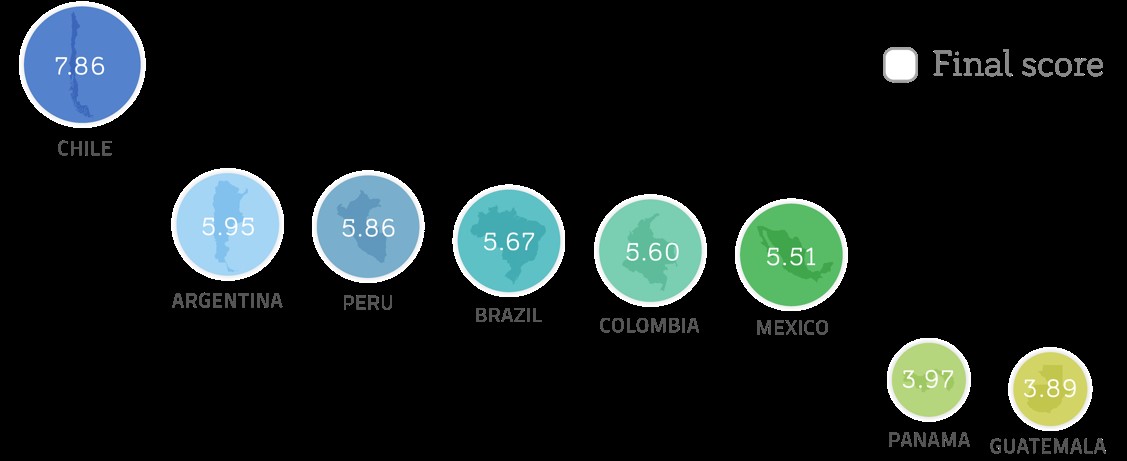Media throughout the Americas took note of the Latin America Anticorruption Assessment produced by the Vance Center’s Lawyers Council for Civil and Economic Rights. It delineates legal efforts and shortcomings to preventing and redressing corruption in Argentina, Brazil, Chile, Colombia, Guatemala, Mexico, Panama, and Peru.
The New York City Bar Association had issued a press release on the assessment, which is available in English, Spanish and Portuguese. La Hora, El Periódico, A Primera Hora in Guatemala, Milenio, El Economista, Contrarréplica and Aristegui Noticias in Mexico, La Prensa, Foco, and Noticias 24 PTY in Panama, and LatinVex reported on the assessment. The full media coverage is available here.
The assessment finds that the lack of political will and inadequate independence of judges and prosecutors pose the main challenges to implementing anticorruption policies in Latin America. It relies on the perspective of legal professionals engaged in anti-corruption practice in various sectors, including law firms, businesses, academia, civil society organizations, human rights defenders, and others.

In the assessment, the Lawyers Council calls on the legal community to address regional and country-level challenges that the assessment identifies. The recommendations highlight the importance of technology in mechanisms to prevent corruption and regional cooperation of the private sector and the legal community to promote best practices.
The assessment addresses key aspects to the fight against corruption: public and private sector corruption; complaint mechanisms; whistleblower protection; specialized agencies; institutional coordination mechanisms; civil society engagement and participation; and transparency and access to information. Significant differences exist among these countries, according to the assessment, which employs quantitative criteria to rank the countries in the success of their anti-corruption efforts from zero (lowest) to ten (highest), based on data from legal experts in the countries:
The assessment underscores that most Latin American countries follow an ex-post facto approach of sanctioning corruption through the criminal system. Preventive efforts to reduce corruption, in both the public and private sectors, are insufficient. Similarly, important factors to countering corruption, including institutional coordination mechanisms, incentives to file complaints, and rules providing for community engagement and participation in anticorruption efforts are nearly non-existent or minimal.
The Lawyers Council for Civil and Economic Rights brings together private-practice law professionals in the Americas to combat corruption and to support the rule of law and the work of civil society. The Lawyers Council consists of 18 lawyers from 14 countries, distinguished in private legal practice nationally and regionally, with demonstrated civic commitment.
Read the full report here: https://bit.ly/LCEAL20